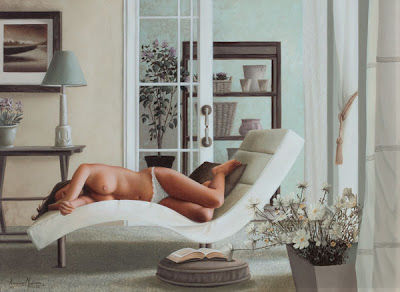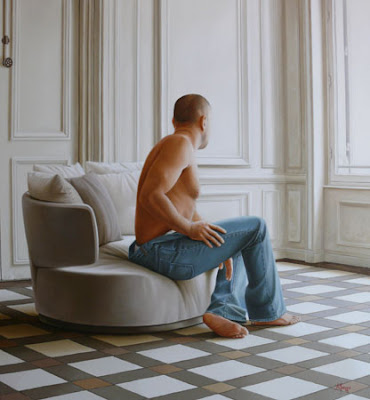Hans Zatzka (1959-1945)







Biography credit e-vint.com
Hans Zatzka, also known as P. Ronsard,Zabateri, Pierre de Ronsard, Joseph Bernard and Bernárd Zatzka, was born March 8, 1859 in Vienna, to a builder and his Viennese actress wife, Hilde Sochor.
Zatzka showed an early interest in painting. From 1877 to 1882 he attended the Academy of Fine Arts in Vienna, studying under Christian Griepenkerl, Karl Wurzinger, and Carl of Blaas. In 1880, at the age of 20, he was awarded the Golden Fügermedal; the golden decoration for services to the city Vienna.
After several trips to Italy, Hans worked in the style of his predecessor, Hans Makart, as a free-lance painter in Vienna, painting ceiling frescoes in stairway houses and residential buildings, numerous murals for altars in churches, and portraits. It was during this time that he developed as special interest in academic genre paintings of idyllic women and cupids.
From these representations, Zatzka turned to painting guardian angel images, elves, sensuous female figures, genre scenes, allegories and other popular motifs. He was a greatly influenced by the operas of Richard Wagner and considered ground-breaking in the production of “bedroom pictures” or “towel format”, a term used to describe a format that fit the low ceiling and cramped spaces. By the 1920′s this style was the size of choice for most European homes.
By the turn of the century, Zatzkas’ pictures turned to picture postcard sales in the galleries of Viennese artists, and ultimately sold to other publishers. In 1906, Zatzka gave precise orders for mass production on a trial basis. By 1914, the first of Hans Zatzkas’ bedroom images were distributed.
Hans Zatzka did not make his living from postcards but from his religious frescoes in churches, altar paintings, and other large commissions such as hospitals in Vienna during the 1920′s. He lived in his home studio, never took in students or teaching jobs and painted until the 80th year of his life.
Hans Zatzka died December 17, 1945.
By 1980, demand for Hans Zatzka paintings in the United States enjoyed great popularity and significantly increased the value of his work. Zatka’s work is now sold internationally in galleries and auction houses, fetching large sums of money. In 2004, Somalia published special stamps with four motifs of images Zatzka: harem dancer, nymphs, spring goddess, and night sky.
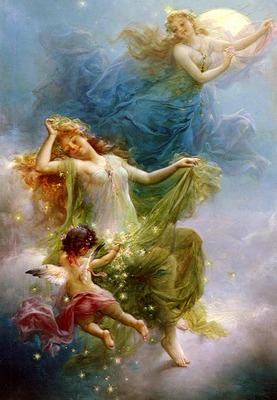
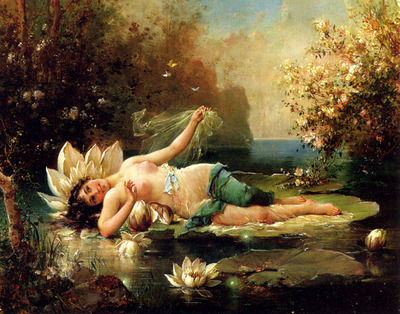








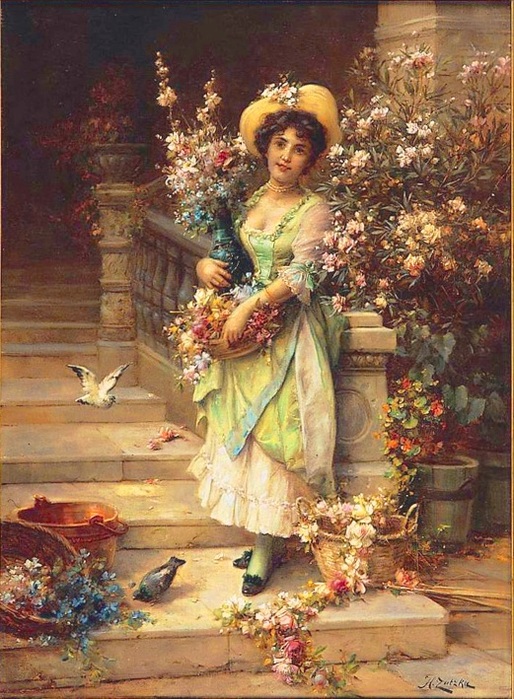
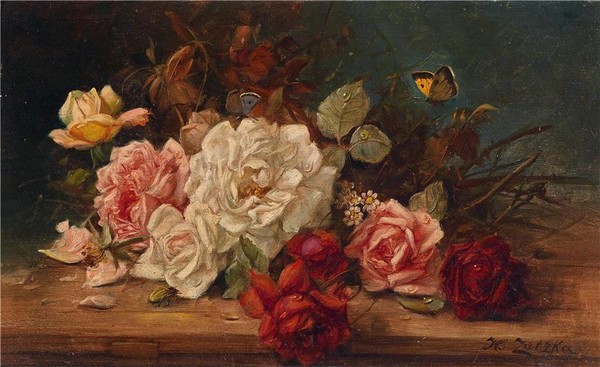


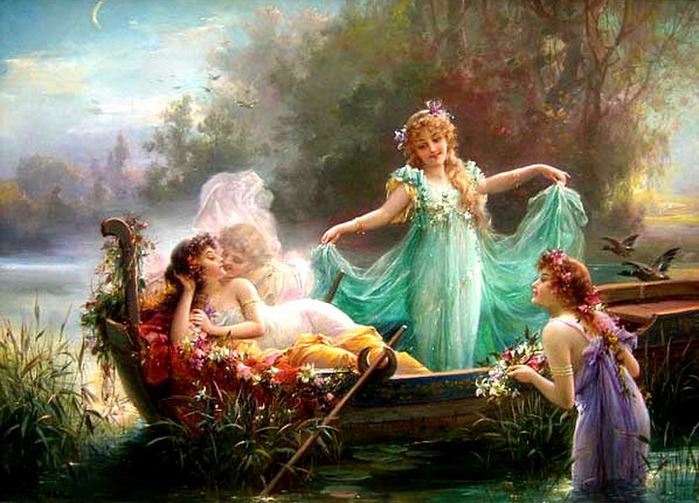








Biography credit e-vint.com
Hans Zatzka, also known as P. Ronsard,Zabateri, Pierre de Ronsard, Joseph Bernard and Bernárd Zatzka, was born March 8, 1859 in Vienna, to a builder and his Viennese actress wife, Hilde Sochor.
Zatzka showed an early interest in painting. From 1877 to 1882 he attended the Academy of Fine Arts in Vienna, studying under Christian Griepenkerl, Karl Wurzinger, and Carl of Blaas. In 1880, at the age of 20, he was awarded the Golden Fügermedal; the golden decoration for services to the city Vienna.
After several trips to Italy, Hans worked in the style of his predecessor, Hans Makart, as a free-lance painter in Vienna, painting ceiling frescoes in stairway houses and residential buildings, numerous murals for altars in churches, and portraits. It was during this time that he developed as special interest in academic genre paintings of idyllic women and cupids.
From these representations, Zatzka turned to painting guardian angel images, elves, sensuous female figures, genre scenes, allegories and other popular motifs. He was a greatly influenced by the operas of Richard Wagner and considered ground-breaking in the production of “bedroom pictures” or “towel format”, a term used to describe a format that fit the low ceiling and cramped spaces. By the 1920′s this style was the size of choice for most European homes.
By the turn of the century, Zatzkas’ pictures turned to picture postcard sales in the galleries of Viennese artists, and ultimately sold to other publishers. In 1906, Zatzka gave precise orders for mass production on a trial basis. By 1914, the first of Hans Zatzkas’ bedroom images were distributed.
Hans Zatzka did not make his living from postcards but from his religious frescoes in churches, altar paintings, and other large commissions such as hospitals in Vienna during the 1920′s. He lived in his home studio, never took in students or teaching jobs and painted until the 80th year of his life.
Hans Zatzka died December 17, 1945.
By 1980, demand for Hans Zatzka paintings in the United States enjoyed great popularity and significantly increased the value of his work. Zatka’s work is now sold internationally in galleries and auction houses, fetching large sums of money. In 2004, Somalia published special stamps with four motifs of images Zatzka: harem dancer, nymphs, spring goddess, and night sky.





























